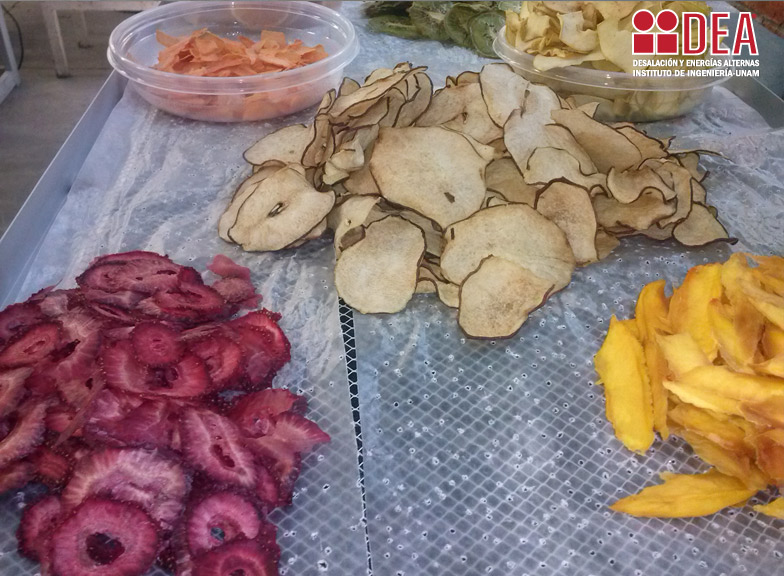Mexican researchers set-up geothermal food dehydrator in pilot project

Researchers of iiDEA of UNAM in Mexico have set up a food dehydrator to utilise geothermal energy from plants in Nayarit, Mexico to help fight food waste and expand export opportunities for local agricultural operations.
Reported locally, a new geothermal food dehydrator has been set up by iiDEA, the Institute of Engineering Desalination and Alternative Energy, at the National Autonomous University of Mexico (UNAM).
The dehydrator is a useful tool for processing fruits such as pineapple, mango or avocado, and any other type of food such as chili, alfalfa, and even meat, and is able to obtain 600 kilograms of product per day, as reported by NoTimex.
The issue of food waste in Mexico is a big issue, due to the lack of storage capacity among others, about 40% of food is wasted in Mexico, or around 20.4 million tons.
The prototype of the machine will be installed in a geothermal field in San Pedro, Lagunillas in Nayarit, where there are one 25 MW flash-condensing plant and two 5 MW backpressure units installed.
The excess heat available from those operations, provides a good source of heat for food dehydration.
The dried food could then be exported, e.g. to the United States and Europe. Food dehydration extracts water from food without altering its nutrients and other properties.
Researchers of the Institute of Engineering and member of the group, Héctor Miguel Aviña Jiménez, and the general manager of PI INGENERA, Daniel González Orellana. Aviña Jiménez highlighted that 40% of food is wasted in Mexico, because there is not enough capacity to store the products, nor to transform, for example, an excessive harvest of fruit in juices, jams or dehydrated product. With this project it is hoped to propitiate the local economic development, because the producers will not have to sell quickly their crops to avoid that they spoil.
“Not only will the losses decrease, but there will be between 60 and 70 direct jobs, and an equal number of indirect jobs. The prototype developed by university students is capable of dehydrating 600 kilograms a day, equivalent to six tons of fresh product. With the loss of weight it is easier to transport them to where they are required, besides they no longer need refrigeration.